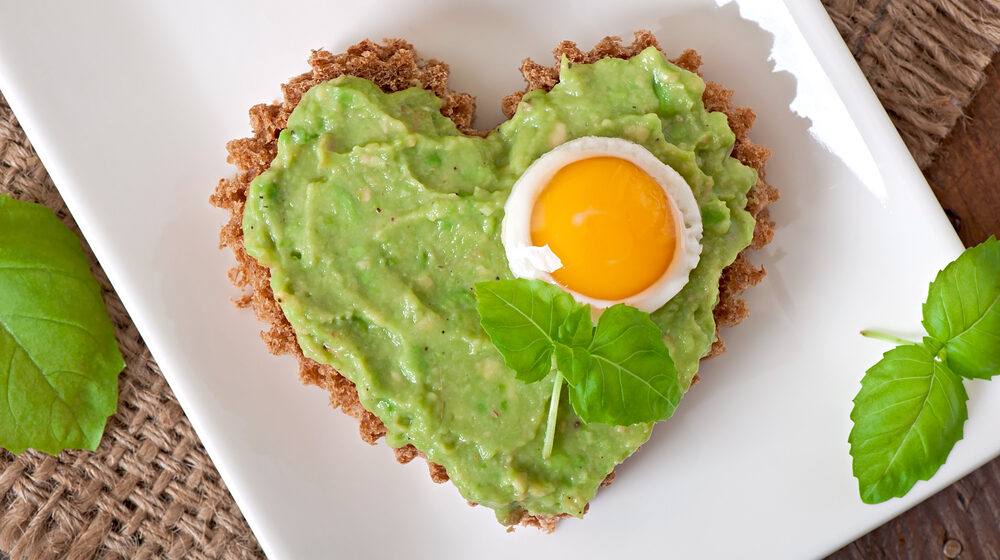
10 Tips for a Healthy Heart
February is Heart and Stroke Month, and we are all being inundated with messages from the media to find out your risk, lower your cholesterol, lower your blood pressure and so on. Too often these discussions with our primary care practitioners end with a prescription. What if there was another way? Good news! For many of us there may well be!
Let’s begin with Cholesterol. It’s something we’ve all heard about. As mentioned above, there’s a lot of talk about controlling cholesterol levels in the blood. We’re told that high cholesterol levels will lead to blocked arteries and heart disease – and none of us want that.
Recommendation number (1) is typically limiting dietary intake of cholesterol, by avoiding foods like eggs that contain it. Unfortunately, this strategy is unsuccessfulfor most individuals. This is because only 20% of the body’s cholesterol comes from food, while the remaining 80% is produced by your liver. When limiting dietary cholesterol doesn’t work, recommendation number (2) usually comes in and doctors turn to prescription drugs like Statins. Knowing that, it’s no wonder that in 2010, the two most popular statins, Lipitor and Crestor, accounted for $11 billion dollars of drug sales in the U.S. alone.
But has anyone paused to educate us about the good side of cholesterol? Well, here we go…
Cholesterol is an essential molecule, without it, we would be dead. Cholesterol is used in the production of:
- about one-third of each of your body’s cell membranes,
- hormones including adrenal (stress) and sex hormones,
- serotonin receptors, which help protect us from depression,
- vitamin D,
- bile salts, which are essential for proper digestion and
- even brain cells.
Another important role of cholesterol is as a repair molecule especially in the healing and repair of blood vessels damaged by the turbulent flow of blood. Basically, cholesterol is the “band-aid” to any scrapes that happen inside your arteries. Maybe not such a bad guy after all?
You can see that your body needs cholesterol. Health does not come from “lowering cholesterol” but from having the right type of cholesterol. You can speak to your doctor about having appropriate testing done to determine not only cholesterol by weight (mg/dl), but the size and number of particles that make up that weight. In the meantime, there are many diet and lifestyle habits that can help support healthy cholesterol levels…more of that in a moment.
Blood pressure is the other most commonly discussed factor in maintaining heart health. Again, we often hear about lowering blood pressure. But why is it high in the first place?
Inflammation can be a primary cause of elevated blood pressure. When your arteries are inflamed, there is less space for your blood to pump through, and so, the pressure goes up. Inflammation is common in those with unknown food sensitivities, including inflammation of the arteries. Some food reactions take hours or even days to develop, making it difficult if not impossible to trouble shoot what the offending food may be on your own.
There are several options to help assess which food may be causing you issues, from food and mood diary assessments, to sensitivity testing using Bio-Meridian technology, to blood testing for IgE (immediate) and IgG (delayed) antibodies. Even if you aren’t able to visit me in Kitchener for an assessment, it may still be beneficial to seek out a qualified practitioner in your area to help you sort through whether certain foods are harming more than helping.
The second overlooked factor in many cases of high blood pressure is dehydration. Drinking adequate water, which is a minimum of eight to ten 8-ounce glasses each day, can improve blood pressure by making blood thinner and easier for the heart to pump around.
So, what do you DO about all this? How do you help yourself?
Follow these 10 simple tips to support a healthy heart!
1. Drink water. A minimum of eight to ten 8oz glasses of PURE water daily is what your body needs to function well including thinning the blood, which may help manage blood pressure.
2. Reduce or eliminate refined flour and sugar in your diet. Yes, that includes “whole grain” flour. These foods raise blood glucose levels, which triggers insulin to be released into the blood stream. Excess insulin in your blood acts like tiny pieces of sandpaper causing microscopic abrasions in your blood vessels, which then signals for cholesterol production in your liver.
3. Eat protein with every meal! Chicken, fish, nuts and seeds, grass-fed meats and even eggs! Protein foods help keep blood sugar balanced, limiting insulin release into your blood stream.
4. Eat good fats. The science is overwhelming; fats don’t contribute to heart disease the way we once believed. Eat fats from high quality sources like avocado, nuts and seeds, coconut, fish or flax oil. These fats help balance blood sugar, lower insulin spikes and give your body the building blocks it needs for healthy lipid levels.
5. Eat your greens. Green vegetables such as kale, spinach or collard greens contain both essential nutrients and fiber. In the absence of fiber, 94% of cholesterol is reabsorbed by the intestine.
6. Assess possible food sensitivities. It’s a good idea to find a qualified practitioner to help you sort through whether certain foods could be doing you more harm than good.
7. Consider specific supplements. Some people may benefit from supplements to target specific nutritional deficiencies, like Magnesium to help promote relaxation throughout the body including the blood vessels.
8. Consume probiotics. Probiotics can come in supplement form, or by including fermented foods in your daily diet. Not only does a healthy balance of gut flora improve the immune system, those good bacteria produce Vitamin K2, a nutrient responsible for ensuring calcium gets deposited in your bones and not in your arteries!
9. Move your body. Even a 20 minute walk per day has been shown to be beneficial.
10. Relax. Stress can wreak havoc on your body. Breathe, delegate, journal, and get more sleep.
Have you implemented any of these strategies into your life?
Let me know in the comments below.
Sources:
- http://www.sott.net/article/242516-Heart-surgeon-speaks-out-on-what-really-causes-heart-disease
- Rowland, David W.. The nutritional bypass: reverse atherosclerosis without surgery. Parry Sound, Ont.: Health Naturally Publications, 1995. Print.
- Taubes, Gary. (2002, April). Cardiovascular Disease: Does Inflammation Cut to the Heart of the Matter? Science Magazine, 242-245. Retrieved from https://www.sciencemag.org/content/296/5566/242.summary
- http://www.webmd.com/news/20110420/the-10-most-prescribed-drugs
- Pistrila, Sofia. (2012). Nutritional Symptomatology Part 2.
- McBurney, Tracy and Lynn Hinton. (2012). Nutritional Symptomatology
- Demeda, Paul and Natalie Rogers. (2012) Preventative Health Care
